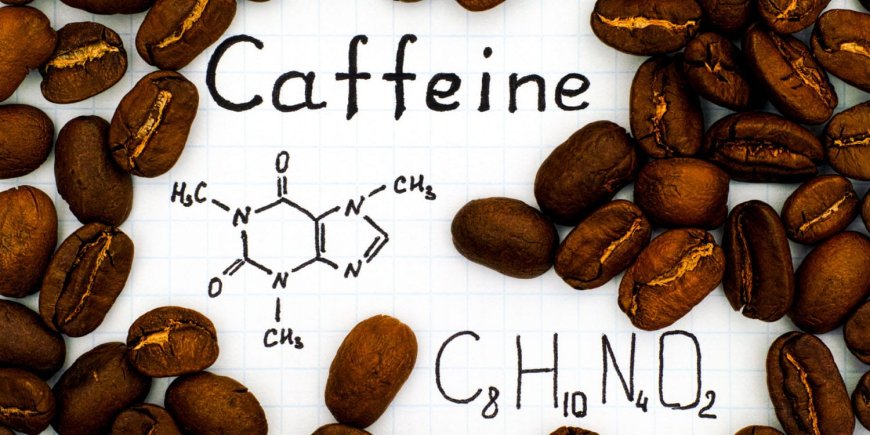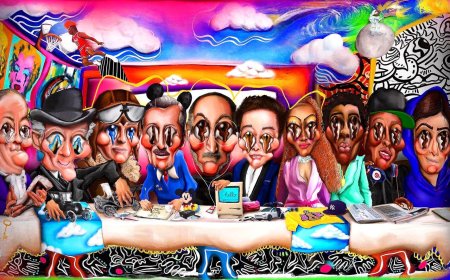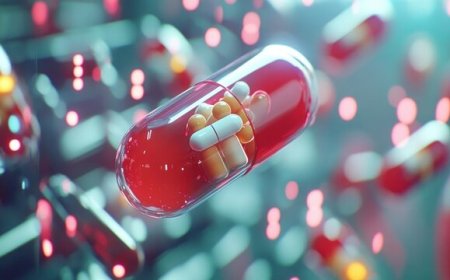How Does Caffeine Affect Your Brain The Chemistry of Coffee
Caffeine activates noradrenaline neurons and seems to affect the local release of dopamine. Many of the alerting effects of caffeine may be related to the action of the methylxanthine on serotonin neurons. The methylxanthine induces dose-response increases in locomotor activity in animals.

Caffeine, a central component of coffee, is a psychoactive stimulant that has profound effects on the human brain and body. It primarily enhances alertness and mood by blocking adenosine receptors, which helps to inhibit drowsiness and increase the release of neurotransmitters such as dopamine and norepinephrine.[1] Due to its widespread consumption and significant impact on daily functioning, caffeine's role in mental performance, physical capabilities, and health has made it a topic of extensive research and debate.
Coffee's complex chemical composition includes a variety of micronutrients and bioactive compounds that contribute to its potential health benefits, such as re- duced risks of certain cancers, type 2 diabetes, and neurodegenerative diseases like Alzheimer's and Parkinson's.[2][3] However, while moderate consumption is generally deemed safe and beneficial, excessive intake can lead to negative effects, including anxiety, insomnia, and dependence.[4][5] The balance between these posi- tive and adverse outcomes has sparked discussions among researchers, healthcare professionals, and consumers regarding the implications of caffeine consumption on overall well-being.
Caffeine's interactions with neurotransmitter systems extend beyond just adenosine and dopamine; it also affects norepinephrine levels, enhancing cognitive performance in certain contexts.[6][7] Nevertheless, high doses may result in overstimulation, impacting creativity and cognitive flexibility.[8] These effects highlight the need for
a nuanced understanding of how caffeine influences mental health, particularly in sensitive individuals or those with pre-existing conditions.
Overall, the cultural significance of coffee, combined with its intricate chemistry and physiological effects, positions it as a prominent subject in both scientific inquiry and everyday life. The global consumption patterns, particularly among varying demo- graphics such as children, adolescents, and pregnant women, further emphasize the importance of ongoing research and consideration of caffeine's diverse impacts across populations.[9][10]
Chemical Composition of Coffee
Coffee is primarily known for its unique flavor and stimulating properties, largely attributed to its chemical composition. The most significant component of coffee is caffeine, a psychoactive compound that acts as a central nervous system stimulant.
Caffeine works by blocking adenosine receptors in the brain, which prevents the onset of drowsiness and enhances alertness and mood through increased release of dopamine and norepinephrine.[1]
Micronutrients and Bioactive Compounds
In addition to caffeine, coffee contains a wealth of micronutrients and bioactive com- pounds, including B-vitamins, magnesium, potassium, and polyphenols. B-vitamins, particularly niacin, contribute to various metabolic processes in the body.[1] Polyphe- nols, known for their antioxidant and anti-inflammatory properties, play a vital role in supporting health and recovery by alleviating oxidative stress and inflammation.[1]
Antioxidants and Health Benefits
Coffee is also rich in antioxidants, which help combat free radicals in the body. The consumption of coffee has been linked to several potential health benefits, including a lower risk of certain cancers, type 2 diabetes, Parkinson's disease, cardiovascular diseases, and even depression.[2][3] Notably, moderate coffee consumption, typical- ly defined as 2 to 4 cups per day, has been associated with these protective effects.[2]
The Role of Soil and Environment
The chemical composition and flavor profile of coffee can be significantly influenced by the soil composition and climate in which coffee plants are cultivated. Volcanic soils, rich in minerals, contribute to the distinctive earthiness and complexity of coffee, while climate conditions like consistent rainfall and temperature can enhance the quality and flavor of the beans produced.[11] Regions with optimal growing conditions, such as Colombia, are known for their balanced acidity and smooth, sweet-tasting coffee.[11]
Mechanism of Action
Caffeine exerts its effects primarily through its role as an antagonist of adenosine receptors in the brain. Adenosine is a neurotransmitter that accumulates throughout the day, promoting sleepiness by binding to its receptors and inducing drowsiness.
Caffeine's structure closely resembles that of adenosine, allowing it to bind to
Interaction with Dopaminergic System
Caffeine also influences the dopaminergic system, which is crucial for mood and motivation. Evidence suggests that the stimulatory effects of caffeine require intact dopaminergic neurotransmission, indicating a significant interaction between adeno- sine A2A receptors and dopaminergic receptors located in dopamine-rich areas of the brain[6]. Caffeine's blockade of A2A receptors, which typically inhibit dopaminergic activity, leads to enhanced dopaminergic neurotransmission. This interaction may be particularly relevant to understanding caffeine's effects in conditions such as psychosis and schizophrenia, where dopamine dysregulation is a concern[6][12].
Other Neurotransmitter Interactions
In addition to its effects on adenosine and dopamine, caffeine influences other neurotransmitter systems, including norepinephrine. By increasing the release of norepinephrine, caffeine contributes to its stimulant effects, enhancing arousal and attention, which can improve cognitive performance in certain contexts[12][7]. How- ever, while caffeine can improve focus during tasks that require intense concentration, excessive consumption may lead to overstimulation, potentially disrupting creative thinking and cognitive flexibility[8].
Broader Neuropsychiatric Effects
The neuropsychiatric effects of caffeine are mediated largely through the antagonism of adenosine A1 and A2A receptors in the central nervous system. Adenosine A1 receptors are distributed throughout the brain, particularly in regions such as the hippocampus and cerebral cortex. The blockade of these receptors is associated with various cognitive and behavioral outcomes, including increased alertness and diminished fatigue. Additionally, caffeine's influence on the sympathetic nervous system results in enhanced adrenaline release, further contributing to its stimulant effects[6][7].

Physiological Effects
Caffeine exerts significant physiological effects on the human body, influencing both cognitive performance and physical capabilities. Its primary action is to enhance alertness and reduce feelings of fatigue by blocking adenosine receptors in the brain, which leads to increased neurotransmitter activity. This mechanism results in heightened vigilance, improved concentration, and faster reaction times, ultimately enhancing mental performance[6][13].
Mental Performance and Alertness
Research indicates that caffeine improves cognitive performance, particularly in tasks requiring sustained attention and memory processing[13][4]. Low doses can produce stimulating effects perceived as beneficial, while high doses may lead to symptoms of caffeinism, such as restlessness and anxiety[6][13]. Regular consump- tion often leads to tolerance, meaning individuals may need higher doses to achieve the same stimulating effects. This can contribute to dependence, characterized by withdrawal symptoms like headaches and fatigue when intake is reduced[14][4].
Impact on Physical Performance
Caffeine is also popular among athletes for its performance-enhancing effects. It has been associated with improved endurance, strength, and overall physical capabilities. The stimulant can allow individuals to exercise harder and for longer durations, partly by increasing calorie burn and suppressing appetite[15][14]. Furthermore, when consumed with carbohydrates, caffeine can improve muscle glycogen replenishment, which is crucial for recovery after intense physical activity[15].
Negative Effects and Considerations
While moderate caffeine consumption can yield positive effects, excessive intake may lead to adverse outcomes such as anxiety, insomnia, and heart palpitations. Individ- uals may experience these side effects more acutely depending on their sensitivity to caffeine, which can be particularly pronounced in children and adolescents[5][16]. The potential for dependence on caffeine raises important considerations for regular consumers, especially those who utilize highly concentrated caffeinated products like energy drinks, where the margin between a safe and toxic dose can be narrow[4].
Caffeine and Mental Health
Caffeine, a well-known stimulant, has significant effects on mental health through its interaction with the brain's neurotransmitter systems. It primarily acts by increasing the levels of dopamine, a neurotransmitter associated with pleasure and reward, which can enhance mood and motivation[17][18]. Moderate caffeine consumption, particularly through coffee, has been linked to a reduced risk of depression and suicide. Studies suggest that drinking 2 to 3 cups of coffee daily may lower suicide risk by up to 45%[17][2].
Positive Effects on Mood and Cognition
Research indicates that caffeine can improve cognitive functions such as alertness, short-term recall, and reaction time[17]. In older adults, caffeine consumption is associated with a decreased risk of developing neurodegenerative diseases like Alzheimer’s and Parkinson’s[17][2]. Additionally, individuals consuming moderate amounts of caffeine report enhanced mental well-being and improved performance in cognitive tasks[19].
Potential Negative Effects
Despite these benefits, excessive caffeine intake can lead to negative mental health effects, particularly in sensitive individuals. High doses of caffeine may induce symp- toms of anxiety and jitteriness, and in individuals with existing anxiety disorders, it may exacerbate symptoms[19][12]. Caffeine has been shown to interfere with sleep patterns, leading to insomnia and reduced sleep quality, which can negatively impact overall mental health[6][12].
Caffeine Withdrawal and Dependence
Caffeine withdrawal can produce a range of symptoms, including headache, irritabil- ity, and anxiety, which typically peak within one to two days after cessation of use and resolve within a few days[6]. While tolerance to caffeine's stimulating effects may de- velop, the psychological dependence remains a topic of debate among researchers, with some individuals meeting criteria for substance dependence[6][12]. Interestingly, withdrawal symptoms can improve with reduced caffeine intake, indicating a complex relationship between caffeine consumption and mental health[6].
Caffeine Consumption Across Different Populations
Caffeine consumption varies widely among different populations and is influenced by cultural practices, age, and health considerations. While it is a common substance in many diets, its effects and recommended limits differ based on individual circum- stances.
General Consumption Patterns
Caffeine is integrated into daily routines for many people worldwide, often consumed through coffee, tea, and energy drinks. Research indicates that average daily caffeine intake among university students is approximately 173 mg, categorizing this as moderate consumption[2][13]. The classification of caffeine intake is typically divided into three categories: low (0-100 mg/day), moderate (100-400 mg/day), and high (400+ mg/day)[13].
Impact on Specific Demographics
Pregnant Women
Pregnant women face unique considerations regarding caffeine consumption. Re- search suggests that caffeine can cross the placenta, potentially affecting fetal heart rate and metabolism. The Mayo Clinic recommends limiting caffeine intake to be- tween 200 and 300 mg per day for women trying to conceive or during pregnancy[3]. Excessive caffeine intake during this period may lead to adverse outcomes, such as slowed fetal growth or an increased risk of miscarriage[3].
Children and Adolescents
Caffeine consumption among children is an area of growing concern, with ap- proximately 75% of children reported to consume caffeine daily[9]. The American Academy of Pediatrics advises against caffeine consumption for children under 12 years old and recommends limiting intake to about 100 mg daily for those aged 12 to 18[20][21]. Concerns regarding excessive caffeine intake in children include
potential impacts on growth and health, as well as the high sugar content often found in caffeinated beverages like sodas and energy drinks[9][21].
Health Considerations
For certain populations, such as individuals with anxiety disorders, heart conditions, or pregnant women, moderation is crucial, and some may need to avoid caffeine altogether[10]. Conversely, moderate caffeine intake (up to 400 mg/day for most healthy adults) is generally considered safe and may provide cognitive and mood benefits[10][3].
Cultural Impact
Coffee has transcended its role as a mere beverage to become a significant cultural symbol across the globe. Different countries have developed unique coffee rituals that reflect their social values, traditions, and communal practices, showcasing coffee as a unifying force in diverse cultures[22][23].
Global Coffee Rituals
Ethiopian Coffee Ceremony
![]() Ethiopia, recognized as the birthplace of coffee, offers one of the most intricate coffee ceremonies. This ritual involves roasting green coffee beans over an open flame, grinding them by hand, and brewing the coffee in a traditional pot called a jebena. The ceremony is an essential expression of Ethiopian hospitality and typically includes three rounds of coffee, which emphasize the communal aspect of coffee drinking and reinforce social ties within the community[24][23].
Ethiopia, recognized as the birthplace of coffee, offers one of the most intricate coffee ceremonies. This ritual involves roasting green coffee beans over an open flame, grinding them by hand, and brewing the coffee in a traditional pot called a jebena. The ceremony is an essential expression of Ethiopian hospitality and typically includes three rounds of coffee, which emphasize the communal aspect of coffee drinking and reinforce social ties within the community[24][23].
Turkish Coffee Traditions
![]() In Turkey, coffee is brewed slowly in a copper cezve, with serving practices sym- bolizing hospitality during significant gatherings. Turkish coffee ceremonies often include tasseography, the practice of reading the grounds left in the cup, which adds a mystical element to the experience. Recognized by UNESCO as part of the world’s intangible cultural heritage, these ceremonies underscore the role of coffee as a vehicle for social connection and cultural identity[25][23].
In Turkey, coffee is brewed slowly in a copper cezve, with serving practices sym- bolizing hospitality during significant gatherings. Turkish coffee ceremonies often include tasseography, the practice of reading the grounds left in the cup, which adds a mystical element to the experience. Recognized by UNESCO as part of the world’s intangible cultural heritage, these ceremonies underscore the role of coffee as a vehicle for social connection and cultural identity[25][23].
Italian Espresso Culture
Italy's coffee culture centers around the espresso, which plays a pivotal role in daily life. Italian coffee rituals reflect a communal experience, often involving quick social interactions at local cafés. This culture has not only influenced coffee consumption in Italy but also contributed significantly to global coffee trends[24][25].
Coffee Houses as Cultural Hubs
Historically, coffee houses have served as venues for cultural and intellectual dis- course, fostering social change and community engagement. Notable establishments, such as Café Central in Vienna, have been meeting points for influential thinkers and artists, shaping ideas that contributed to societal transformation[26]. These “third places” provide environments for individuals to connect beyond their home and work lives, reinforcing the communal aspect of coffee culture[23].
Contemporary Significance
Today, coffee continues to be a catalyst for social interaction and community bonding. Coffee breaks in workplaces offer employees a chance to decompress and strength- en relationships outside of formal duties, highlighting coffee’s role in enhancing workplace culture[26][23]. Moreover, as global awareness about sustainability and ethical consumption grows, coffee culture is evolving, adapting to modern values while retaining its cultural significance[27][28].
In essence, coffee serves as a mirror reflecting the complexities of human civiliza- tion, symbolizing a blend of tradition, community, and contemporary values across different cultures worldwide[22][27].
References
[1] : Caffeine and Culture: Origins, Benefits, and Cultural Rituals
[2] : Caffeine: Effects, risks, and cautions - Medical News Today
[3] : The Effects of Caffeine on Your Body - Healthline
[4] : Exploring Coffee Culture Around the Globe (A Full Guide) - The Cozy Coffee
[5] : Neuropsychiatric effects of caffeine - Cambridge University Press ...
[6] : Caffeine: Neurotransmitter Antagonist Explained - NeuroLaunch.com
[7]
|
|
: Pathways and Mechanism of Caffeine Binding to Human Adenosine A 2A Recep-
[8] : Caffeine and Creativity: How Coffee Fuels Artists, Entrepreneurs, and ...
[9] : How Caffeine Boosts Mood and Energy Levels: Scientific Insights [10]: Caffeine: Effects, Risks, and How to Get Help - Verywell Mind
[11] : The Global Journey of Caffeine: Cultural and Historical Insights
[12] : Caffeine: Benefits, Uses, Dosage, and Side Effects
[13] : Caffeine and Kids - Columbia University Irving Medical Center
[14] : Brain Brew: How Daily Coffee Habits May Affect Brain Plasticity and ...
[15] : What Is Caffeine, and Is It Good or Bad for Health?
[16] : Caffeine and Dopamine: Morning Coffee Science - Neurolaunch
[17] : Caffeine: How Much Is Safe and How It Affects Your Body Systems - WebMD
[18] : Caffeine, Kids and Heart Health - Children's Health
[19] : Caffeine and Children - AACAP
[20] : Can Kids Drink Coffee and Caffeine? - Cleveland Clinic Health Essentials
[23] : Coffee Around the World: A Journey Through Different Coffee Cultures
[24] : A Guide to Coffee Rituals Around the World
[25] : Caffeine and Culture: Explore Global Coffee Traditions
[26] : Coffee Culture and Lifestyle: Exploring the Relationship Between Coffee ...
[27] : The Culture of Coffee: Exploring Global Rituals and Traditions
: The evolution of coffee culture: From bean to cup to lifestyle










































